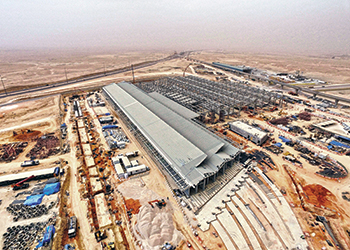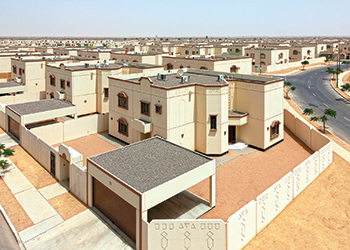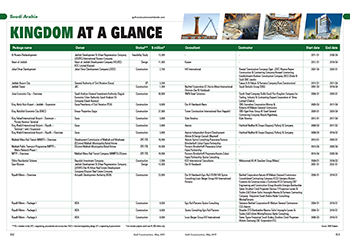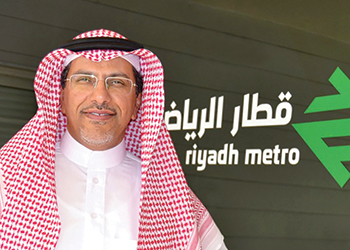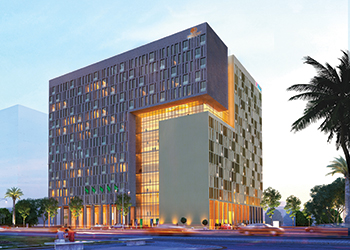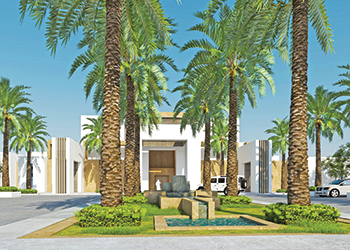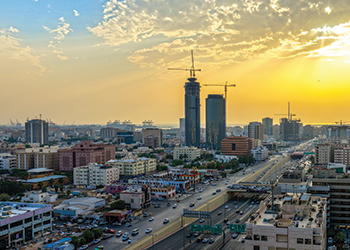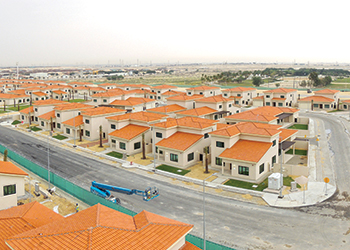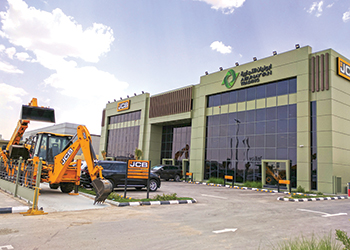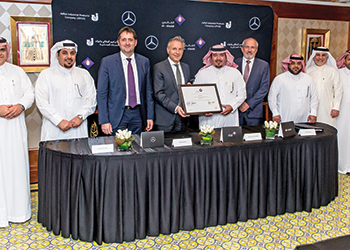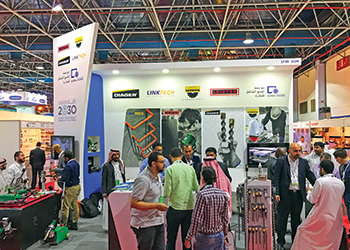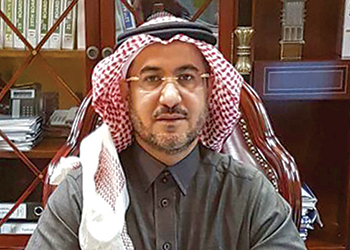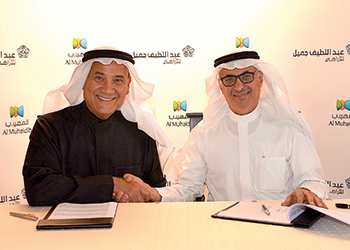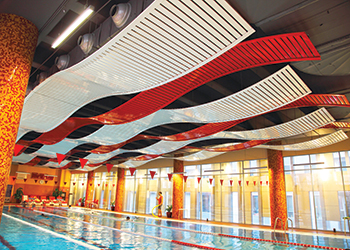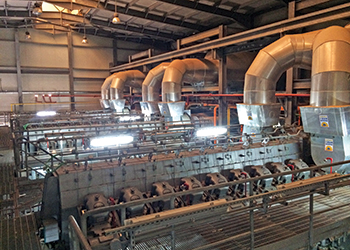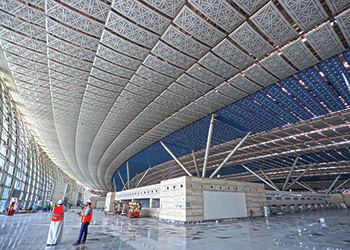
 API ... premium products.
API ... premium products.
Advanced Plastic Industries (API), established since 1994 as a premium manufacturer of the finest polyolefin pipes and fittings for the construction and infrastructure sectors, says the Saudi market is of high importance to the company.
It is a hub for superior quality products manufactured and supplied by the company, which is expanding in line with the growth of the kingdom, to meet the piping requirements of the market.
This year, API has expanded its product range by introducing its new and innovative brand for silent drainage, ApiSilence. The brand comprises acoustically insulating and mineral-filled pipes and fittings, made from the finest polypropylene co-polymers, for drainage and rainwater. The system provides ductility, high resistance to impact and abrasion, and excellent endurance to chemicals present in detergents. Due to the brand’s use of push-fit connections with certified rubber seals, installation time and cost can be reduced.
“ApiSilence will enable us to offer clients near-to-full domestic water piping solutions, mainly catering to the hotel industry in the kingdom. It will add tremendous value to both, hotel developers, and surely hotel guests,” says Charbel Abou Chedid, the company’s CEO.
API produces a wide range of PP-RCT (polypropylene random copolymer) pipes and fittings, HDPE (high-density polyethylene) pipes, PP-B pipes and fittings for drainage, and PP mineral-filled pipes and fittings for silent drainage applications. In addition, it is currently developing its existing PP-RCT range to offer higher diameters, to cover wider applications.
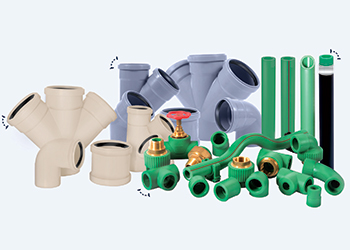 |
API ... premium products. |
With regards to the Saudi market, Abou Chedid says API will be focusing on geographical expansion, by targeting the developing regions of the kingdom through initiating partnerships and distribution deals with new and existing distributors.
API exports its products directly to the Saudi market. It has established a niche through its agent, Salah Jamjoom Trading Company (SJT), which has sales offices in key areas including Riyadh, Jeddah, Makkah, and Dammam. SJT also has high-rack warehouses that hold API products in Jeddah and Dammam, allowing API great regional coverage, and reduced project delivery times.
Commenting on business in the kingdom, Abou Chedid says that the slowdown in government expenditure, budget allocation, and general consumer sentiment has resulted in tighter liquidity, and tougher cash retention. Consequently, API has witnessed a slowdown in some regions, and growth in other developing ones. However, he is optimistic that the private sector will regain confidence in the Saudi market. “When the time comes, we will be ready to equip and serve the reviving market with the smartest solutions in the field of plastic piping systems”, he says.
API has supplied PP-RCT pipes and fittings to several prestigious projects in Saudi Arabia, including Jabal Omar Development Project in Makkah; Emaar’s Jeddah Gate in Jeddah; and AA Turki Corporation’s (Aatco) Al Hugayet Tower in Dammam. It is currently supplying these pipes and fittings to the main contractor Nesma and Partners Contracting for Saudi Arabian National Guard’s (SANG) hospital projects in Riyadh, Jeddah, Taif and Qassim; Azmeel Contracting for the construction of 570 villas in Jubail for Saudi Aramco; the Al Rashid Residence Towers & Hyatt Hotel being built in Al Khobar by Al Rashid Trading and Contracting Company (RTCC); and to Shapoorji Pallonji Group for the construction of the Riyadh Marriott Hotel & Executive Apartments in Riyadh’s Diplomatic Quarters for Dur Hospitality.
Amongst these, Abou Chedid highlights the SANG hospital projects as a major reference, as API was able to convey to both, the client and contractor, the benefits of using PP-RCT, as opposed to the conventional PP-R and copper piping systems. API, he says, was able to substitute traditional copper pipes – that are reputed for high heat and pressure resistance – with its exceptional PP-RCT piping system. “Our products were selected due to our material’s ability to withstand the high temperatures and pressures that are essential for the project’s longevity, in parallel to our cost-saving and value-engineering approach,” he stresses.
 |
API facilities ... state of the art. |
The project consists of five medical cities across the country, including a maternity hospital in Riyadh, a children’s hospital and a neurological and trauma care centre in Jeddah, and two specialised National Guard hospitals in Taif and Al Qassim.
Overall, API reports back-to-back growth in sales throughout 2015 and 2016. Despite the situation in the region, it has managed to sustain past figures, and is looking forward to a more promising year ahead. “The region that we operate in is still a developing one, which translates to healthy prospects and strong business potential for API. We are also expanding our product range and sizes, to broaden our scope of business. In light of this expansion, we have positive outlook for the future, and hope that the market aligns with our vision”, he says.
API’s factory in Lebanon covers approximately 10,000 sq m and operates 24 hours a day to produce a capacity of 3,500 tonnes annually. To meet the growing needs of the local and export markets, and to better accommodate product development, API has set plans to expand its factory premises, and bring its factory grounds and headquarters within the same location. The expansion project will allow an increase in production volume by 40 per cent, and will create approximately 30 job opportunities. “This development will continue to set the benchmark for the production of high-end quality pipes and fittings, locally and globally,” adds Abou Chedid.
API is currently in the process of increasing its production capacity across all divisions. For instance this year, it will be doubling production volume for its ApiThene (polyethylene) and ApiDrain (polypropylene) brands.
API has an office in Dubai, UAE, API International Marketing DMCC which provides support to API Lebanon, in terms of marketing and technical services, to better cater to the UAE specifically, and the GCC region as a whole.

















.jpg)













 (1).jpg)














































